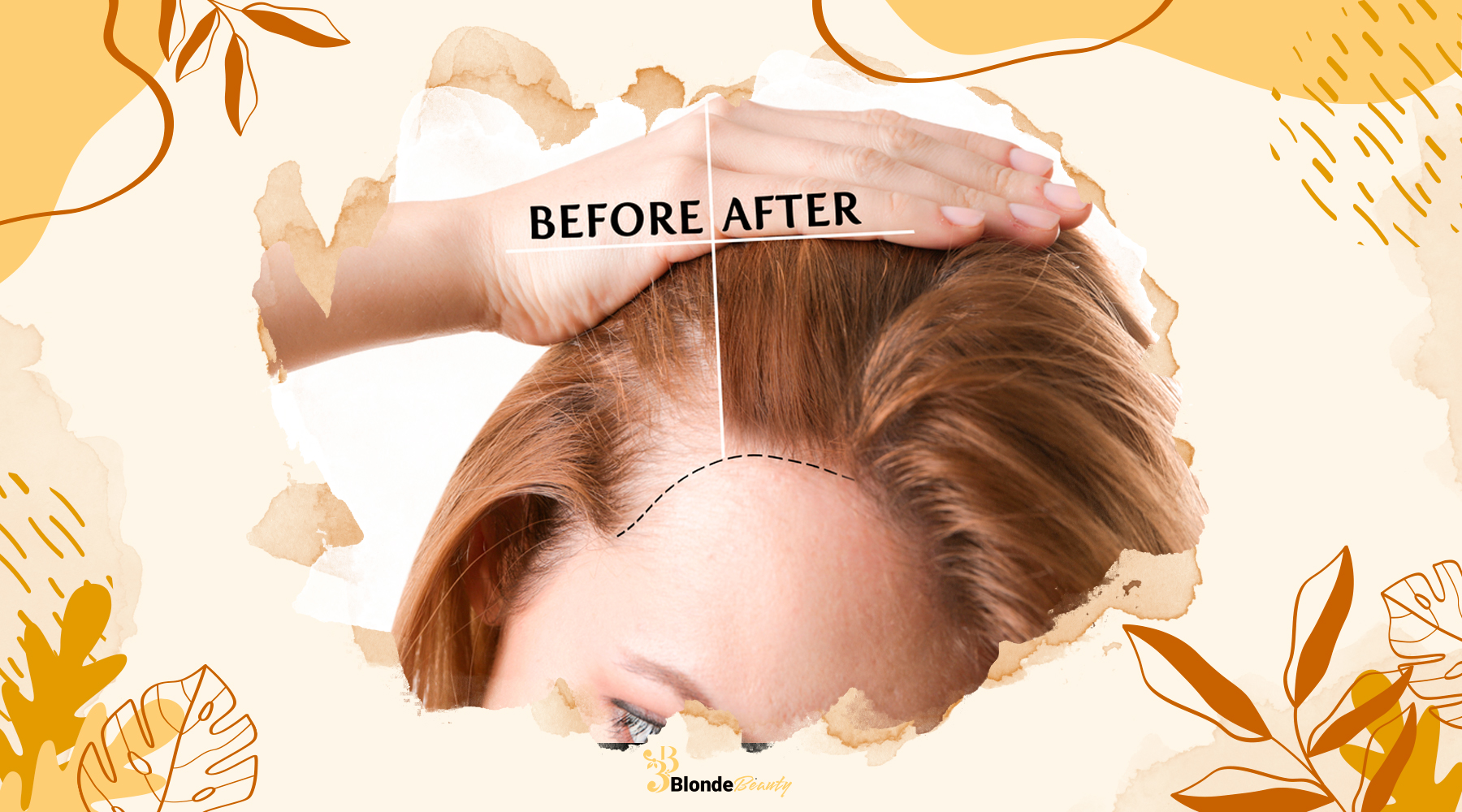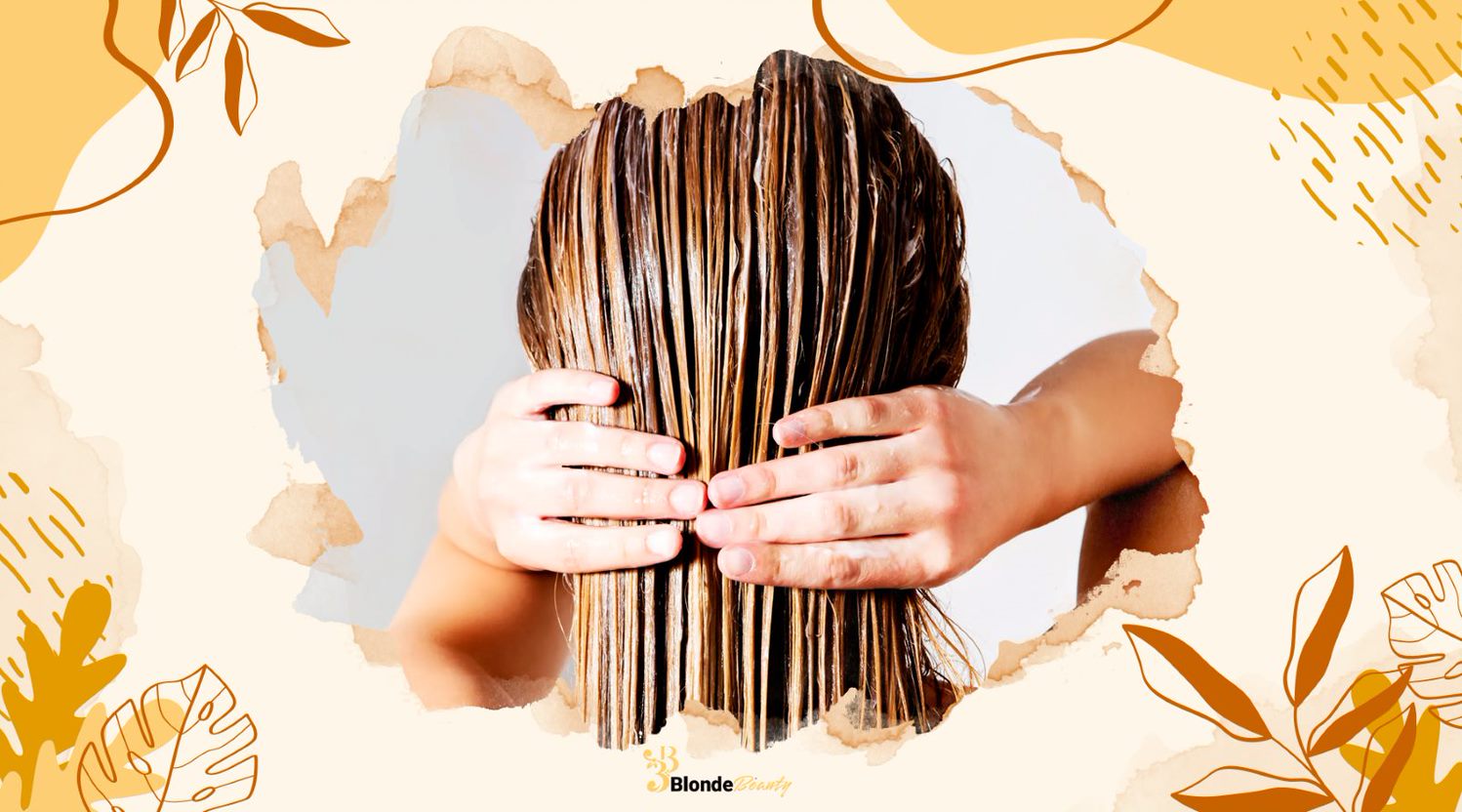Does cinnamon help hair growth? Cinnamon is more than just a staple spice in your kitchen—it might also be a secret weapon for hair care. Often, we overlook the power of common ingredients like cinnamon, but its benefits for enhancing hair health are noteworthy.
This article from Blonde Beauty explores how cinnamon can contribute to hair growth, promising a healthier and stronger mane. Keep reading to discover how this familiar spice can transform your hair care routine.
What Is Cinnamon?
Cinnamon is a versatile spice derived from the inner bark of trees within the Cinnamomum genus. Recognized for its distinctive aroma and sweet-spicy flavor, cinnamon graces both sweet and savory dishes around the globe.
This spice isn’t limited to just culinary uses. It’s a celebrated addition in many cultures for its flavor-enhancing properties in everything from morning coffee to holiday treats.

History of Usage of Cinnamon
The storied past of cinnamon stretches back to 2800 BC, first known as “Kwai” in ancient Chinese texts. Its historical significance is profound. Cinnamon was a key ingredient in the anointing oil Moses used in biblical times to sanctify individuals.
The Romans recognized cinnamon for its medicinal benefits, particularly for digestive and respiratory conditions. They even utilized it during funerals to mask the odors of the deceased.
In ancient Egypt, it played a dual role in the embalming process of mummies, cherished both for its preserving qualities and its aromatic fragrance.
Does Cinnamon Help Hair Growth?
Research suggests that cinnamon could be a promising natural remedy for hair growth. A notable 2018 animal study showed that cinnamon oil significantly enhanced hair length in male rats. Its effectiveness was comparable to 2 percent topical minoxidil (a.k.a. Rogaine).
The secret behind cinnamon’s hair growth potential lies in cinnamaldehyde, its main active compound. Cinnamaldehyde boosts circulation and blood flow to the hair follicles, which is essential for fostering hair growth. Additionally, it may help reduce hair loss in older individuals.
However, while these results are encouraging, further studies on humans are necessary to fully validate cinnamon’s effectiveness for hair growth.
Benefits of Cinnamon on Hair
Here are some benefits of cinnamon for hair that you may want to know.
Combat Lice
Integrating cinnamon oil into your shampoo routine can effectively combat lice. This is particularly beneficial for children, helping prevent the spread of lice in school settings.
Reduce Hair Loss and Prevent Baldness
Cinnamon is effective in controlling hair loss, thus helping to prevent baldness.
Its rich polyphenol content provides potent antioxidant benefits, while its antimicrobial properties play a crucial role in warding off scalp infections, a common factor in hair fall.

Protect Against Hair Damage and Extends the Growth Phase
Cinnamon’s anti-inflammatory, antioxidant, and antifungal properties contribute to maintaining scalp health.
These qualities help shield the scalp and hair from free radical damage and inflammation. This also extends the anagen (growth) phase of hair and prevents dandruff.
Enhance Hair Length, Density, And Growth
Applying cinnamon essential oil topically can significantly influence hair length and density.
The presence of cinnamaldehyde in cinnamon dilates blood vessels and enhances blood flow to the scalp, fostering healthy hair growth and vitality.

Nourish With Essential Nutrients
Cinnamon is a powerhouse of vital nutrients that enhance hair health, including vitamin C, riboflavin, thiamine, niacin, vitamin A, and protein. These nutrients nourish the hair, promoting overall health and strength.
Possess Antifungal Properties
With its strong antifungal capabilities, cinnamon is an excellent addition to any hair care regimen, especially for combating conditions like seborrheic dermatitis or chronic dandruff.
How to Use Cinnamon On Hair
If you’re interested in leveraging cinnamon for hair growth or to combat dandruff, here’s a straightforward method that involves stimulating circulation and treating scalp issues:
Prepare the Oil Base
- In a small saucepan over low heat, gently warm 1/4 cup of coconut oil or olive oil until lukewarm. Avoid letting the oil reach boiling point.
Mix in Cinnamon
- Add 3 to 5 drops of cinnamon essential oil or 1 teaspoon of ground cinnamon to the warm oil. Stir well to create a smooth hair mask.
Apply the Mask
- Part your hair and apply the cinnamon mixture directly to your scalp using a brush or your clean fingers. Ensure the entire scalp is evenly covered.
- Distribute any remaining mixture through the ends of your hair for overall treatment.

Allow It to Settle
- Leave the mask in your hair for about 15 minutes, allowing the cinnamon to penetrate and act.
Rinse Out
- Wash your hair as usual with your regular shampoo.
Alternative Bases for Oily Scalps: For those with oily scalps, substituting the oil with yogurt or honey can provide a lighter base while still delivering the benefits of cinnamon.
Side Effects and Notes When Using Cinnamon for Hair
While cinnamon offers several benefits for hair health, it’s important to be cautious due to potential side effects, especially for those with sensitive skin or allergies. Here are some possible reactions to be aware of when using cinnamon on your hair:
- Skin Irritation: Commonly manifests as contact dermatitis, which can cause discomfort.
- Redness and Rash: Signs of mild allergic reactions or irritation.
- Burning Sensation: May occur shortly after application, indicating sensitivity.
- Chemical Burn: Can result from prolonged contact or excessive use of cinnamon, particularly in its oil form.
Steps to Minimize Risks:
- Patch Test: Before incorporating cinnamon into your hair care routine, perform a patch test. Apply a small amount of cinnamon or cinnamon oil inside your elbow and monitor the area for 24 to 48 hours. Any sign of irritation or allergic reaction means you should avoid using it on your scalp.
- Dilution is Key: Always dilute cinnamon oil with a carrier oil (like coconut or olive oil) before application. Cinnamon oil is highly concentrated and can be too harsh if used undiluted.
- Be Cautious Even If You Can Ingest It: It’s not uncommon for individuals who can consume cinnamon without issues to react differently when it’s applied to the skin. Skin sensitivity to topical applications can vary from dietary tolerance.
Conclusion
In conclusion, does cinnamon help hair growth? Cinnamon does indeed promote hair growth and offers numerous benefits for maintaining healthy hair. From its rich supply of essential nutrients to its antifungal properties, cinnamon is a valuable addition to your hair care regimen. Consider integrating cinnamon into your routine and observe the positive changes it brings to your hair’s health and appearance.
We’d love to hear about your experiences with cinnamon in hair care. Have you noticed improvements? Do you have any concerns or questions about enhancing your hair’s health? Feel free to share your thoughts and inquiries in the comments below.
Don’t forget to check out more blogs from Blonde Beauty for additional tips and insights on hair care.

Laureate Professor Clare Collins
Professor Clare Collins is a leading expert in nutrition and dietetics at the School of Health Sciences, part of the College of Health, Medicine and Wellbeing. Her work is changing the way we think about food and health. She grew up as one of nine children and was the first in her family to finish high school and go to college. This background gave her a strong work ethic and a deep appreciation for seizing opportunities.
As the Director of the Hunter Medical Research Institute’s Food and Nutrition Program and a recipient of three NHMRC Research Fellowships, Professor Collins is making a big difference in public health. She focuses on helping people who are often overlooked, using new technologies like apps and online programs to improve their nutrition and reduce the risk of chronic diseases.
Professor Collins is well-respected and has been recognized as a Fellow in four major health and science organizations. She leads a diverse team of experts, including dietitians, computer scientists, and engineers, working together on global health projects.
Her achievements are impressive. She has received over $29 million in research funding, published more than 450 papers, and helped 35 PhD and Master’s students complete their degrees. She’s also active in sharing her knowledge with the public. She has developed tools like the Australian Eating Survey and the Healthy Eating Quiz, and she often appears in the media to talk about nutrition.
PUBLISHED ARTICLES
- Collins, C. (2019). “The Effect of a Pilot Dietary Intervention on Pain Outcomes in Patients Attending a Tertiary Pain Service.”
- Collins, C. (2022). “Variation in cardiovascular disease risk factors among older adults.”
- Collins, C. (2022). “Evaluation of an online intervention for improving stroke survivors’ health-related quality of life: A randomised controlled trial.”
These articles show Professor Collins’s commitment to understanding how better nutrition can improve health. Her work is important for researchers, doctors, and anyone interested in healthy living.
